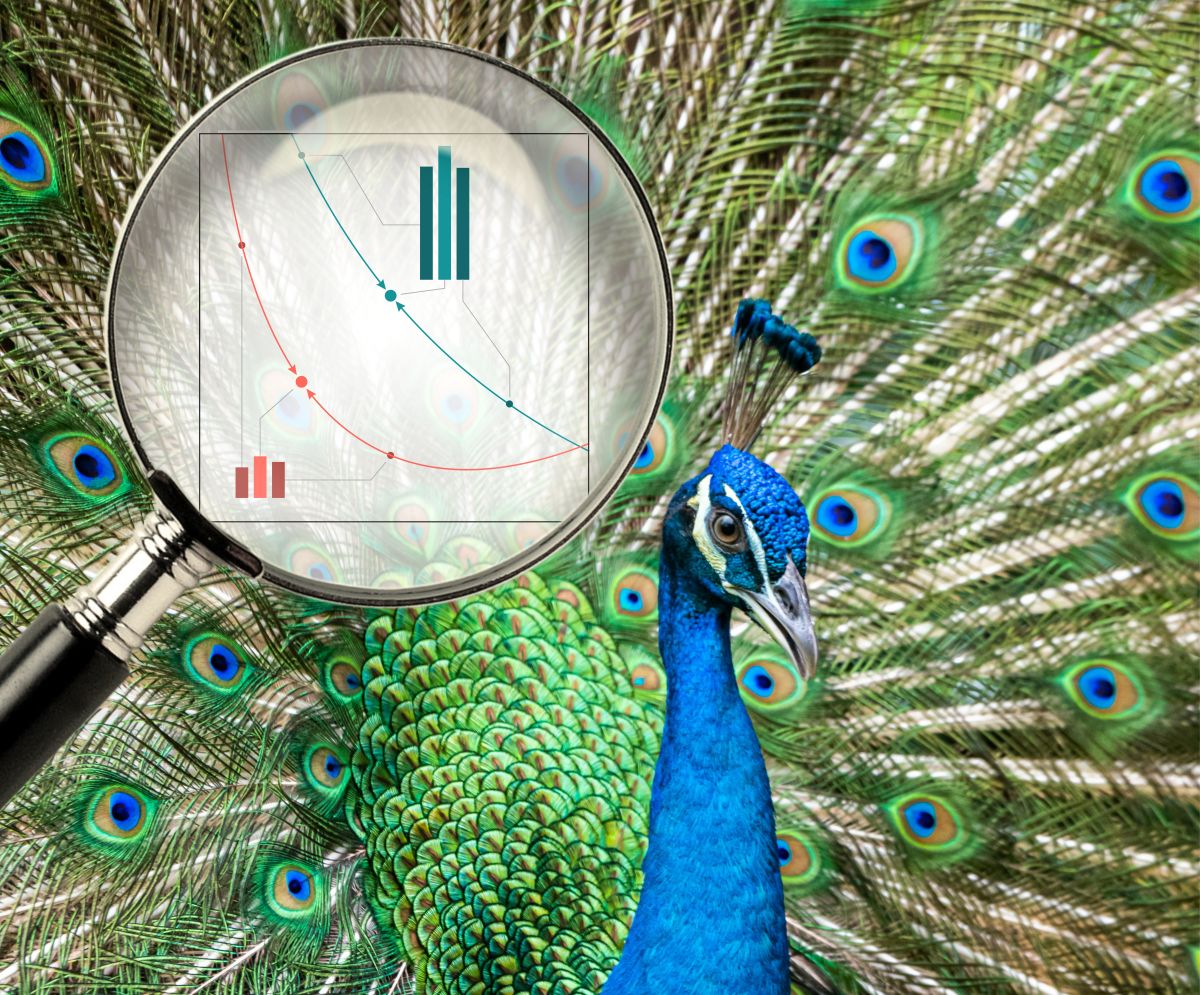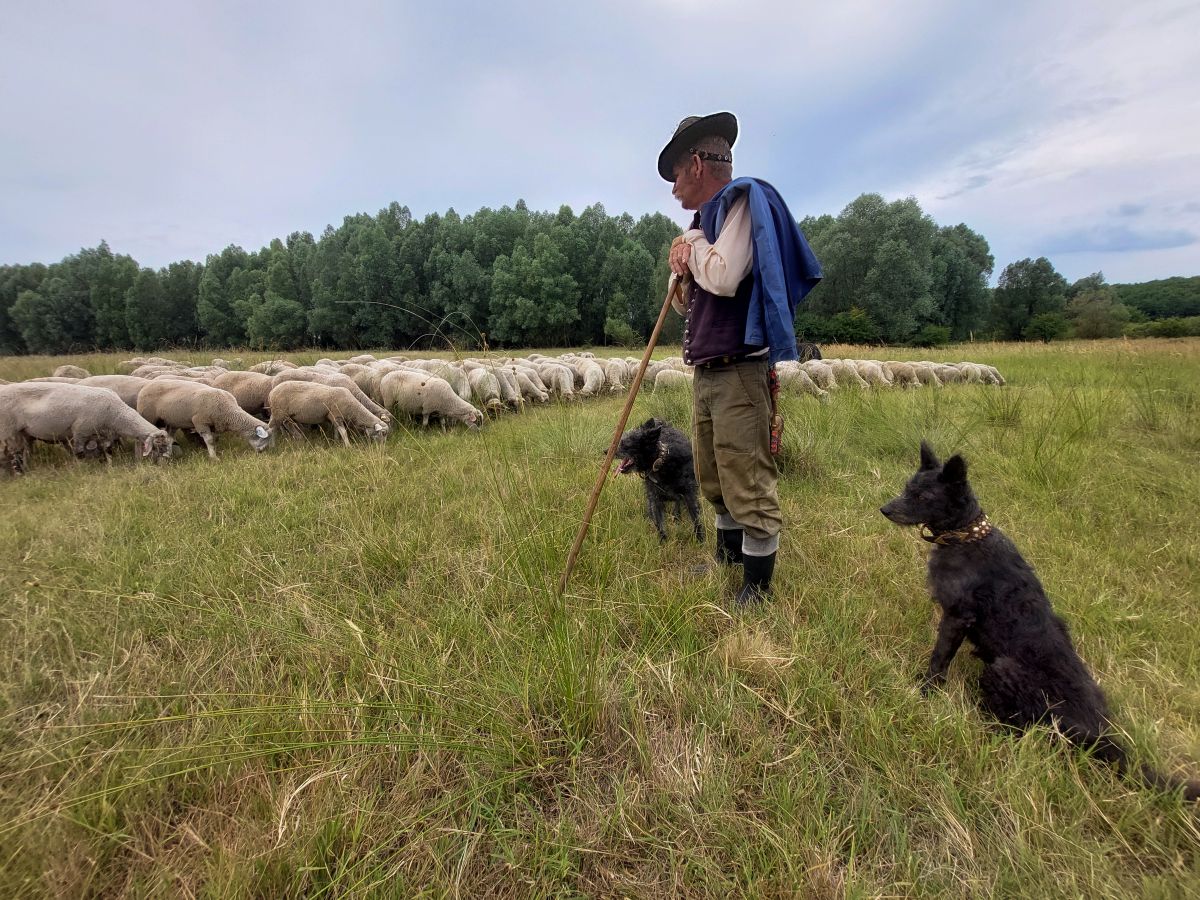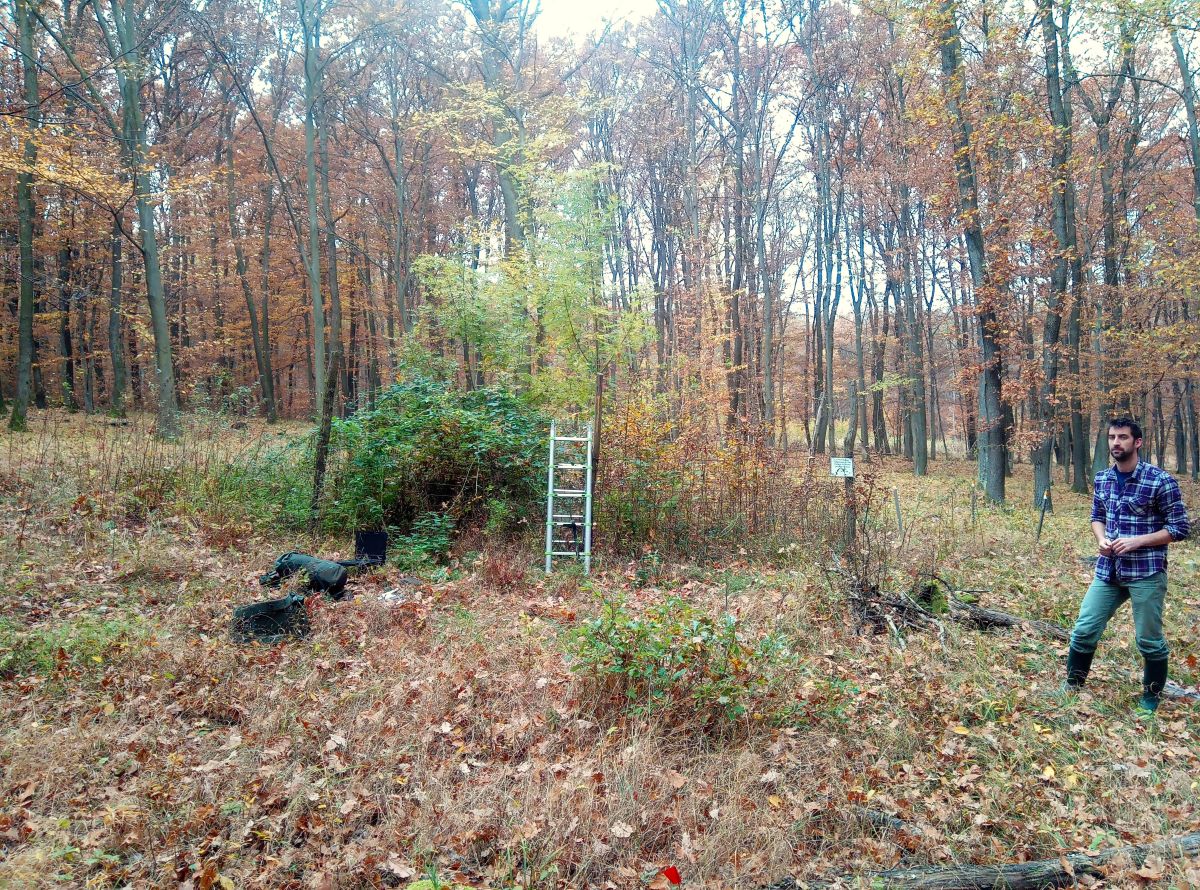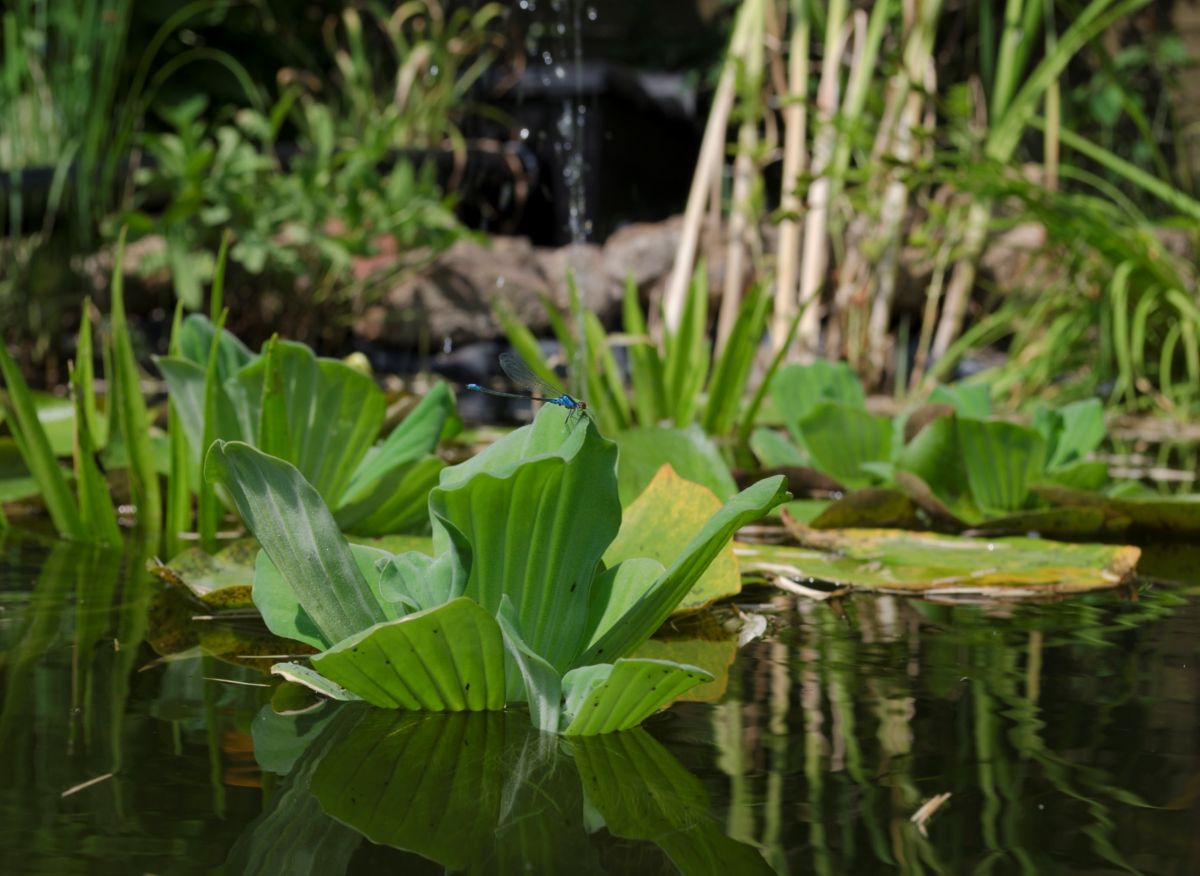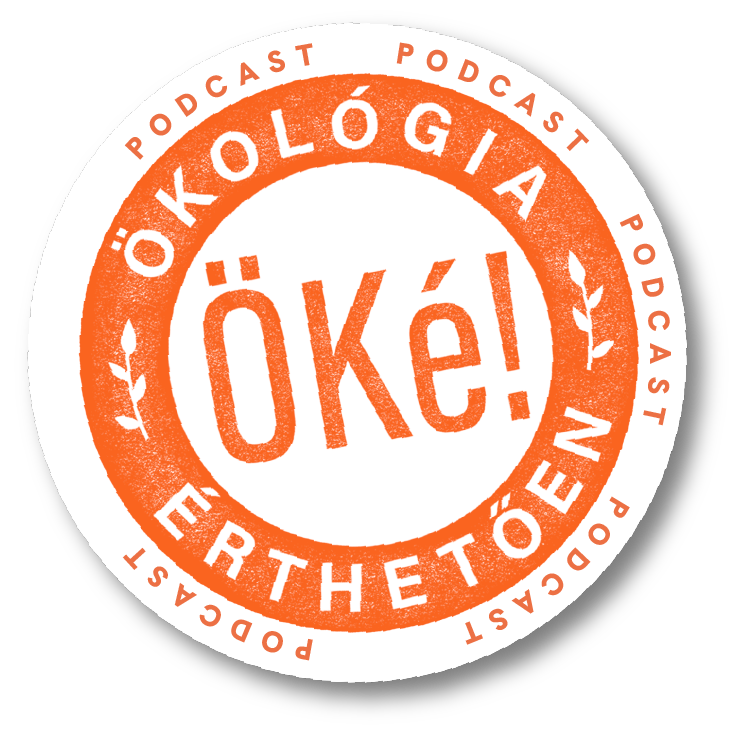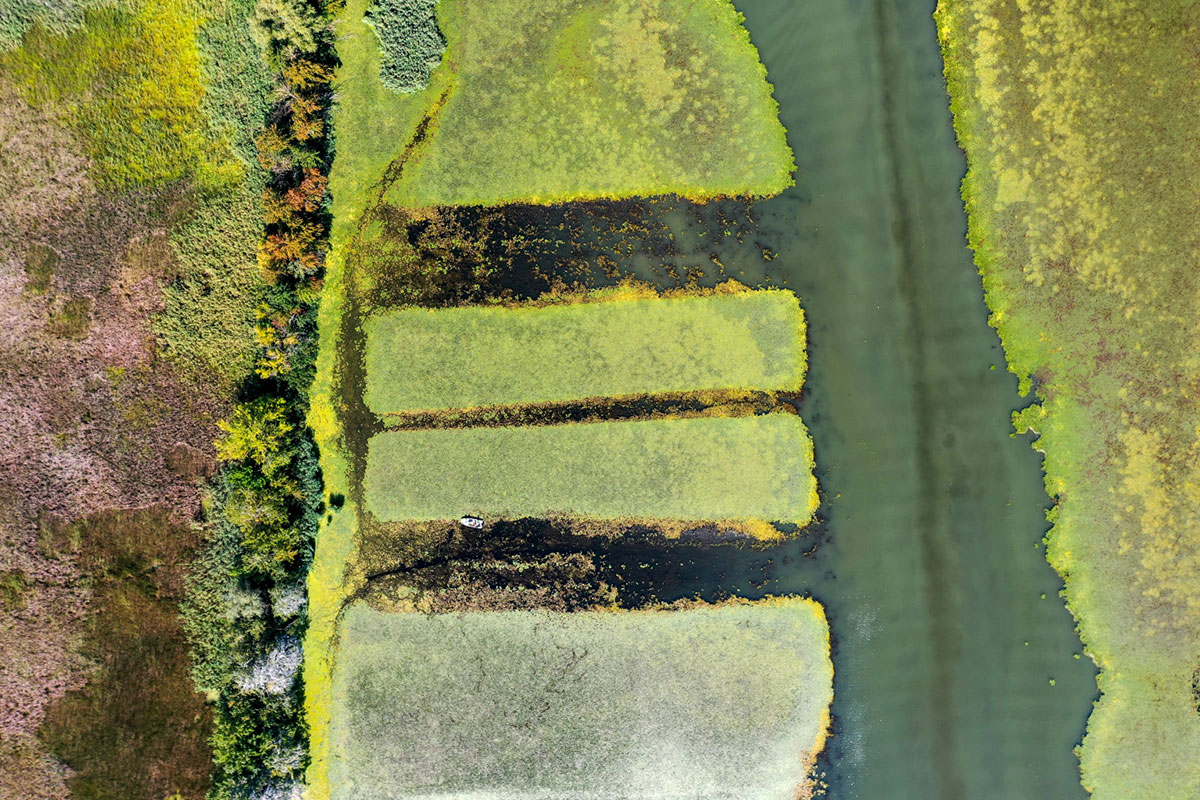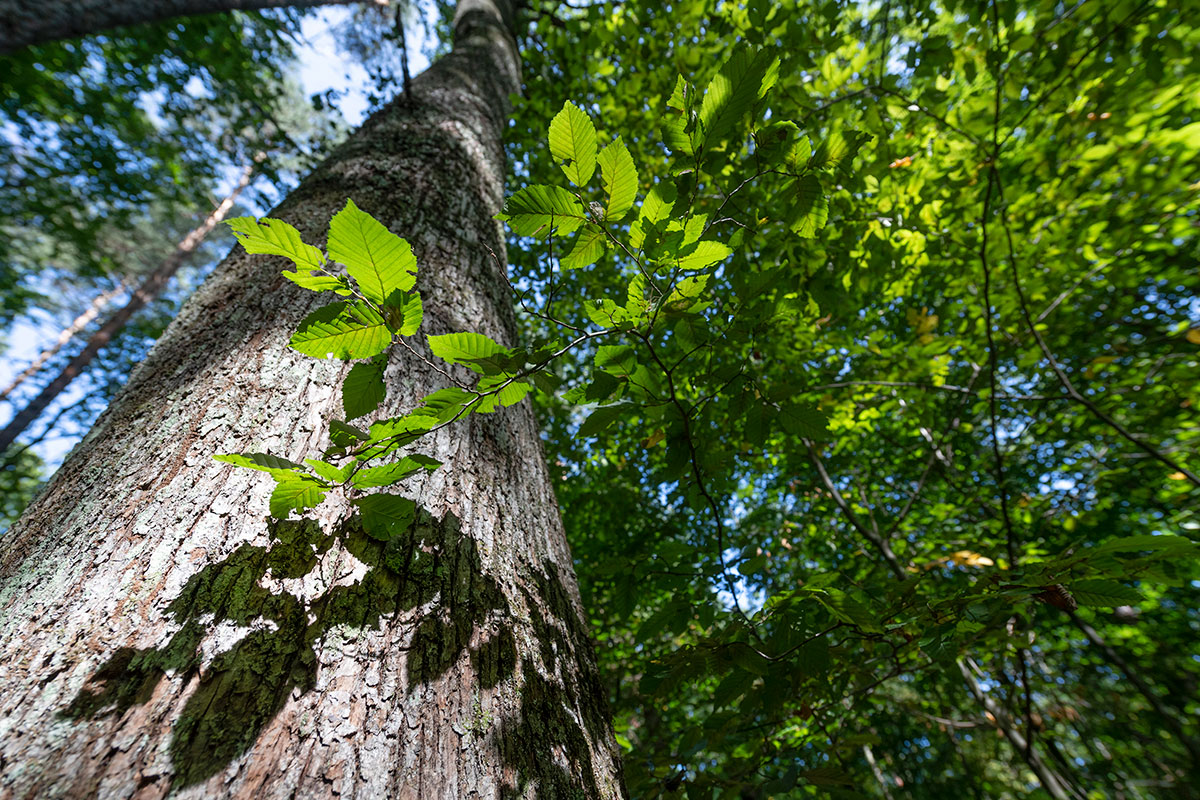News
New species, new challenges
Science-based popular booklet on the spread and management of invasive non-native species is now available The large-scale and continuous introduction of non-native species poses unprecedented challenges to ecosystems, agriculture, livestock production, and human health. In response […]
New species, new challenges
Science-based popular booklet on the spread and management of invasive non-native species is now available The large-scale and continuous introduction of non-native species poses unprecedented challenges to ecosystems, agriculture, livestock production, and human health. In response […]
Ecosystem-service based green infrastructure developments
In 2025, a large-scale national project entitled “Foundations for the strategic planning of ecosystem services-based green infrastructure developments supported by regularly updated datasets” was launched in Hungary (ÖSZ-ZI, KEHOP_PLUSZ-3.2.2-24-2024-00002). The aim of the project is to […]
Why are some animal and human signals honest, while others are deceptive?
A new, general theory argues it is not about costly or exaggerated show-offs but about the inherent trade-offs between investments and benefits animals (and humans) face when they signal. The work offers a clearer way to […]
Traditional ecological knowledge without its holders: invisible stewards in global biodiversity policy
A new global study published with the defining authorship of HUN-REN Centre for Ecological Research, Institute of Ecology and Botany in Conservation Biology, the leading journal in the field, highlights that many governments still do not […]
Mission
Our main mission is to conduct high-quality research on biodiversity and ecosystems, including aquatic and terrestrial life. Our centre is primarily dedicated to ecological research, but many of our studies are related to the impact of agriculture and forestry on biodiversity, traditional ecological knowledge or interdisciplinary topics.
We are working hard to integrate institutes and disciplines, as it is difficult to tackle complex environmental challenges in isolation. In addition to research, we are committed to building bridges between science and society, and thus are involved in EU and global policy development.
The Institute of Aquatic Ecology is the largest scientific centre in Hungary which considers its mission to be the outstanding regional engagement in the field of aquatic ecology and its co-studies, and to establish and represent international research trends in Hungary. The Institute’s primary mission is to conduct basic research, with a special focus on integrative, systems ecology approaches to climate change, invasions and anthropogenic impacts on water, thus contributing to the maintenance and improvement of the ecological status of our domestic waters.
The Institute of Ecology and Botany seeks to propose scientific solutions to the environmental challenges of our time, such as land-use change, habitat degradation, climate change, urbanisation, the effects of intensive agriculture, invasions, and the emergence of new diseases. The Institute’s nearly 80 researchers, organised in research groups, work on a wide range of organism groups and habitats, using a variety of methodological approaches. In addition to its basic research activities, the institute carries out a number of public monitoring and applied research activities.
The Institute of Evolution is the largest theoretical evolutionary biology scientific centre in Hungary, with research interests spanning all levels of biological organisation. We investigate the origin of life, transitions in evolution involving large increases in complexity (including the origin of human language and cooperation), evolutionary aspects of neural networks, the relationship between learning and evolution, and evolutionary-ecological processes, with a particular focus on the dynamics of emerging infectious diseases under the impact of climate change.
Priority publications
Patonai, Katalin ; Bessenyei, Anna ; Vad, Csaba F. ; Borza, Péter. Functional responses correspond to stable isotope-based trophic positions among four invasive Ponto-Caspian mysid species (Crustacea, Mysida) NEOBIOTA, 93 pp. 187-201. , 15 p.
2024
Paolinelli Reis, Bruna; Branquinho, Cristina; Török, Katalin; Řehounková, Klára; Nunes, Alice; Halassy, Melinda. The added value of the long-term ecological research network to upscale restoration in Europe JOURNAL OF ENVIRONMENTAL MANAGEMENT
2024
Fekete, Réka; Valkó, Orsolya; Fischer, Leonie K.; Deák, Balázs; Klaus, Valentin H. Ecological restoration and biodiversity-friendly management of urban grasslands – A global review on the current state of knowledge JOURNAL OF ENVIRONMENTAL MANAGEMENT
2024
Bede‐Fazekas, Ákos; Somodi, Imelda. Precipitation and temperature timings underlying bioclimatic variables rearrange under climate change globally GLOBAL CHANGE BIOLOGY
2024
Szentiványi, Tamara; Takács, Nóra; Sándor, Attila D.; Péter, Áron; Boldogh, Sándor A.; Kováts, Dávid; Foster, Jeffrey T.; Estók, Péter; Hornok, Sándor. Bat-associated ticks as a potential link for vector-borne pathogen transmission between bats and other animals PLOS NEGLECTED TROPICAL DISEASES
2024
Davín, A.A., Woodcroft, B.J. Soo, R.M., Benoit Morel, B., ..., Szöllősi, G.J. A geological timescale for bacterial evolution and oxygen adaptation Science 388:eadp1853
2025
Kovács Bence; Németh Csaba; Aszalós Réka; Veres Katalin. Small oases below the canopy: The cooling effects of water-filled tree holes on the local microclimate in oak-dominated stands AGRICULTURAL AND FOREST METEOROLOGY, 353. Paper: 110058 (2024)
2024
Szabó Beáta; Váczy‐Földi Máté; Vad Csaba F.; Pálffy Károly; Huỳnh Thu‐Hương; Dobosy Péter; Fierpasz Ádám; Márton Zsuzsanna; Felföldi Tamás; Horváth Zsófia. Connectivity Loss in Experimental Pond Networks Leads to Biodiversity Loss in Microbial Metacommunities GLOBAL CHANGE BIOLOGY 30 : 12 Paper: e70001 (2024)
2024
Biró Marianna; Molnár Krisztina; Öllerer Kinga; Szilágyi Réka; Babai Dániel; Molnár Csaba; Molnár Zsolt. Oral history methods can reveal drivers of landscape transformation: Understanding land‐use legacies with local and traditional knowledge in Central Europe PEOPLE AND NATURE (2024)
2024
Kröel-Dulay György; Rigó Attila; Tanács Eszter; Szitár Katalin; Ónodi Gábor; Aradi Eszter; Bakró-Nagy Zsolt; Biró Marianna; Botta-Dukát Zoltán; Kalapos Tibor; Kelemen András; Laborczi Annamária; Pásztor László; Rabuogi Quinter Akinyi; Mojzes Andrea. Explosive spread of sand dropseed (Sporobolus cryptandrus), a C4 perennial bunchgrass, threatens unique grasslands in Hungary (Central Europe) NEOBIOTA, 95. pp. 59-75. , 17 p. (2024)
2024
Morel B.; Williams T.A.; Stamatakis A.; Szöllosi G.J. AleRax: a tool for gene and species tree co-estimation and reconciliation under a probabilistic model of gene duplication, transfer, and loss BIOINFORMATICS, 40 : 4. Paper: 162 (2024)
2024
Török K.; Valkó O.; Deák B. Ecosystem restoration with local or broad seed provenancing: Debates and perceptions in science and practice BIOLOGICAL CONSERVATION, 293. Paper: 110535 (2024)
2024
Pálffy K.; Smeti E. Combined effect of warming, nutrients, and species pool size on the seasonal variability of phytoplankton composition: A modeling perspective LIMNOLOGY AND OCEANOGRAPHY, Paper: 12548 (2024)
2024
Czárán Tamás; Scheuring István; Zachar István; Számadó Szabolcs. Cue-driven microbial cooperation and communication: evolving quorum sensing with honest signaling BMC BIOLOGY, 22 : 1. Paper: 73 (2024)
2024
Károlyi Adél; Scheuring István. Cooperation in public goods game does not require assortment and depends on population density JOURNAL OF EVOLUTIONARY BIOLOGY, Paper: voae029 (2024)
2024
Lovas-Kiss Á.; Antal L.; Mozsár A.; Nyeste K.; Somogyi D.; Kiss B.; Tóth R.; Tóth F.; Fazekas D.L.; Vitál Z.; Halasi-Kovács B.; Tóth P.; Szabó N.; Löki V.; Vincze O.; Lukács B.A. Bird-mediated endozoochory as a potential dispersal mechanism of bony fishes ECOGRAPHY, Paper: e07124 (2024)
2024
Bihaly Á.D.; Piross I.S.; Pellaton R.; Szigeti V.; Somay L.; Vajna F.; Soltész Z.; Báldi A.; Sárospataki M.; Kovács-Hostyánszki A. Landscape-wide floral resource deficit enhances the importance of diverse wildflower plantings for pollinators in farmlands AGRICULTURE ECOSYSTEMS & ENVIRONMENT, 367. Paper: 108984 (2024)
2024
Paczkó Mátyás; Vörös Dániel; Szabó Péter; Jékely Gáspár; Szathmáry Eörs; Szilágyi András. A neural network-based model framework for cell-fate decisions and development COMMUNICATIONS BIOLOGY, 7 : 1. Paper: 323 (2024)
2024
Jablonszky Mónika; Garamszegi László Zsolt. The effect of repeated measurements and within-individual variance on the estimation of heritability: a simulation study BEHAVIORAL ECOLOGY AND SOCIOBIOLOGY, 78 : 2. Paper: 18 (2024)
2024
Marja Riho; Albrecht Matthias; Herzog Felix; Öckinger Erik; Segre Hila; Kleijn David; Batáry Péter. Quantifying potential trade-offs and win-wins between arthropod diversity and yield on cropland under agri-environment schemes–A meta-analysis JOURNAL OF ENVIRONMENTAL MANAGEMENT, 353. Paper: 120277 (2024)
2024
Brans Kristien I.; Vad Csaba F.; Horváth Zsófia; Santy Luca; Cuypers Kiani; Ptacnik Robert; De Meester Luc. Regional and fine-scale local adaptation in salinity tolerance in Daphnia inhabiting contrasting clusters of inland saline waters PROCEEDINGS OF THE ROYAL SOCIETY B-BIOLOGICAL SCIENCES, 291 : 2016. Paper: 20231917 (2024)
2024
Lameck Azaria Stephano; Saeed Omar; Boros Emil. The chemical composition, classification, and geographical distributions of soda-saline lakes in Eastern Tanzania’s rift valley JOURNAL OF HYDROLOGY: REGIONAL STUDIES, 51. Paper: 101668 (2024)
2024
Szitár Katalin; Bánhidai András; Csecserits Anikó; Csőszi Mónika; Halassy Melinda; Kertész Miklós; Kollányi László; Schneller. Krisztián; Teleki Mónika; Vaszócsik Vilja; Török Katalin The zone cube model – A tool to operationalise green infrastructure prioritisation LANDSCAPE AND URBAN PLANNING, 243. Paper: 104976 , 11 p. (2024)
2024
Molnár Zsolt; Aumeeruddy-Thomas Yildiz; Babai Dániel; Díaz Sandra; Garnett Stephen T.; Hill Rosemary; Bates Peter; Brondízio Eduardo S.; Cariño Joji; Demeter László; Fernández-Llamazares Álvaro; Guèze Maximilien; McElwee Pamela; Öllerer Kinga; Purvis Andy; Reyes-García Victoria; Samakov Aibek; Singh Ranjay K. Towards richer knowledge partnerships between ecology and ethnoecology TRENDS IN ECOLOGY & EVOLUTION, 39 : 2 pp. 109-115. , 7 p. (2024)
2024
Barta Barbara; Szabó Attila; Szabó Beáta; Ptacnik Robert; Vad Csaba; Horváth Zsófia. How pondscapes function: connectivity matters for biodiversity even across small spatial scales in aquatic metacommunities ECOGRAPHY, 2024 (2), Paper: e06960 (2024)
2024
Projects in the spotlight
Increasing the ecological sustainability of oak forests by close-to-nature forestry based on experimental research (#oakadapt)
Central European oak dominated forests have been used for centuries and currently exhibit serious biodiversity decline associated with global environmental changes. Nonetheless, they preserve considerable natural capital. They have a key role in the timber provisioning […]
Complex dispersal networks of wetlands
National Multidisciplinary Laboratory for Climate Change
National Laboratory for Water Science and Water Security
National Laboratory for Health Security – Invasion Biology Division
Az evolúció fényében: elvek és megoldások
Evolúció és tanulás
The need for a paradigm shift in the field of nature conservation: the importnace of the impact of landscape structure on biodiversity patterns and functions
Both the intensification of agriculture and increasing urbanisation lead to the degradation of natural habitats, negatively impacting wildlife and their ecosystem functions (e.g., pollination of plants). However, these effects not only occur locally but can also […]
HAS Lendület (“Momentum”) 2019: Vegetation and seed bank dynamics
Our research group aims to find solutions for the long-term maintenance of the biodiversity and functioning of grassland ecosystems by learning about the role of seeds in ecosystems. Grasslands are particularly species-rich and diverse communities that […]
Biodiversity in the grips of agriculture and urbanisation
One of the leading causes of biodiversity loss is land-use change, associated with habitat loss and degradation. Sustainable development requires a nature conservation strategy that takes into account the landscape as a whole. It is essential […]



